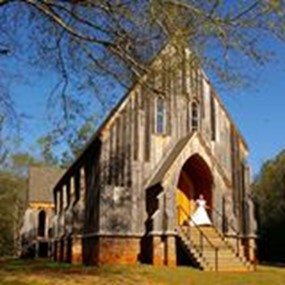Selma City Council Meetings Engage, Inform
Selma is one of the most historic cities in Alabama. It is also, unfortunately, facing many present-day struggles that threaten the future prosperity of Selma’s citizens. The elected leaders charged with addressing the issues and maintaining this great city are Mayor George Evans, and the city council, which is made up of president Corey Bowie, Dr. Cecil Williamson, Susan Keith, Greg Bjelke, Angela Benjamin, Sam Randolph, Rev. Benny Tucker, Bennie Ruth Crenshaw, and Michael Johnson.
The Selma City Council serves as the governing body over a city of more than 20,000 people. The council manages the responsibility of such a populated, yet small, area by splitting the city into wards. Each of the eight city council members is responsible for one of the eight city wards. This seems to be an effective way to keep the councilors connected to citizens and not overwhelmed by the business of the entire population. It also empowers citizens to be involved in their city government by giving them direct access to a councilperson and specific projects that take place in their ward.
The city officials are also assigned to different committees that address the gamut of functional issues that city government concerns itself with, including public safety, parks and recreation, finance, public works, and community development.
Selma’s council also has several committees that are unique to the city. One addresses the use of public buildings. This is important in Selma because the city is the county seat of Dallas County, so the council must maintain city and county government buildings such as courthouses and administrative offices. The city of Selma also owns several historic buildings that the council and mayor are charged with maintaining.
Permanently owned buildings include the old Dallas County Academy building that is home to a public Ceramic Arts studio and a Performing Arts Center housed in the recently restored downtown Walton Theater.
The city is also often involved with the restoration or upkeep of some of the many historic buildings in Selma – currently this includes the original Selma YMCA building and the St. James Hotel.
Another unique council committee oversees the Dallas County Youth Ambassadors program. This community service group was started several years ago by councilwoman Crenshaw and has been successful in teaching county teens about local government, introducing them to leaders, and engaging them in their communities. The committee organizes and oversees group projects, such as the effort this summer to collect box fans and distribute them to area senior citizens.
Most committee business is discussed during the city council’s work sessions, which take place every first and third Thursday of the month. Other topics, such as new business, items for vote, items for public comment, and the mayor’s report, are handled during the council meetings every second and fourth Tuesday of the month.
Selma is a busy place, and the council and mayor often have many complex issues to discuss so these meetings usually last two or three hours.
The most recent meeting involved Mayor Evans’ updates about payments to the city from the “Selma” movie crew, progress on the city of Selma AT&T phone app, trash pick-up ordinances, and reports from the police and fire chiefs, among other things.
The mayor also fielded questions about renovations to the St. James Hotel. This 160-year-old riverfront hotel was recently taken on by the city after issues with several private owners left the hotel in poor condition. Projects like this are expensive for the city to manage but are important to the city’s story and downtown atmosphere and thus important to Selma’s future. Hopefully, city contractors will have the hotel up and running, and making money, very soon.
Another important agenda item from the most recent meeting was the renaming of a street in the historic district. Several years ago, the Council was presented with the idea of renaming Lapsley Street for Amelia and Sam Boynton, residents of Selma and leaders in the Civil Rights Movement, but tabled the issue. Several months ago, the idea was reintroduced by councilwoman Crenshaw.
The idea has been addressed at several other city meetings and public forums and has created a bit of a stir in Selma. Historic purists did not like the idea of “erasing” the Lapsley name from the downtown (the family is credited with bringing railroads to Selma and producing several well-known artists, attorneys, and missionaries), while strong supporters of the Boynton family felt that the renaming would aptly honor the family’s contributions to civil rights. At the meeting, the council agreed to rename a specific portion of the street “Boyntons Street”. Official details will be voted on in the near future.
The Selma Council deals a wide variety of issues on a weekly basis. The diverse city requires dedication from its public servants to stay informed on the many issues that affect citizens, be open to citizens’ reactions to city decisions, and personally engage with neighbors and the community. But like in any city, Selma’s mayor and council depend on attentive citizens to help them do the work of community building.
Selma has the potential to be one of Alabama’s great cities, but needs the support of many informed and involved citizens to get there. City council meetings offer the information people need to be these engaged citizens.
Tags: Selma
